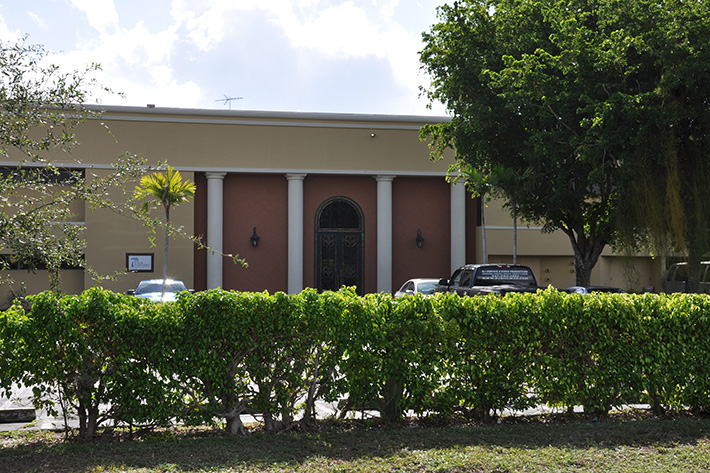The Opiate Addiction Lifestyle – Lies & Disappointment: When is Enough, Enough?
With stimulants and hallucinogens, it’s hard to overlook the effects of these drugs on a person’s temperament and behavior. With opiates, it can be difficult to spot gradual changes since these drugs have a more subdued effect on one’s demeanor at the early stages of addiction. When taking prescription opiates for pain relief purposes, these changes may well go unnoticed for a while.
Likewise, from the addict’s perspective, the opiate addiction lifestyle takes on a life of its own right under his or her nose. In the process, a person’s mental and emotional well-being suffers considerable decline to the point where loved ones start to bear the brunt of addiction’s effects.
While it’s doubtful the addict will eventually “snap out of it,” knowing what to watch out for can help shield you and your family from the consequences of the addiction lifestyle.
Opiate’s Diminishing Effects
People taking prescription pain medications for treatment purposes will likely experience a mild “buzz” when first using the drug. For someone who’s prone to abuse, the effects of the “buzz” become just as noticeable as the drug’s pain-relieving effects.

An opiate addiction can lead to mental health issues such as anxiety and depression.
With continued drug use, opiate effects grow weaker as the brain’s chemical processes come to assimilate the drug’s effects within its own chemical system, according to the U. S. Department of Veterans Affairs. At this point, the temptation to increase dosage amounts seems overwhelming, especially when pain symptoms start to resurface.
Over time, the brain’s growing tolerance for opiates and the drug’s weakening effects become driving forces behind drug abuse practices, which in turn opens the door for opiate addiction to develop.
The Addiction Mindset
Denial – The Ultimate Lie
As brain tolerance levels increase, the body develops a physical dependence on opiate effects. With repeated drug use, this physical dependence evolves into a psychological dependence, at which point addiction has taken hold.
Denial of the problem becomes the battle cry of the addict once the effects of the drug warp the brain’s logic and reasoning abilities. In effect, denial is part of an entire belief system that works to protect and maintain the addict’s drug using behaviors.
According to University of Pennsylvania Health System, this belief system lies at the center of the addiction mindset, and essentially dictates the addict’s sense of right and wrong in all situations. Under these conditions, lying becomes second nature.
Lifestyle Effects
As with any core belief system, addiction breeds its own behaviors and routines. Once opiate addiction assumes primary importance in a person’s life, any and all choices made are based on protecting and maintaining his or her ability to obtain and use drugs.
Opiate addiction lifestyle effects may take the form of:
- Missed days at work (or school) or loss of employment
- Money shortages
- A litany of broken promises
- Problems with the law
- Declining health
- Mental health issues, such as depression and/or anxiety symptoms
Assessing the Damage
Opiate addiction grows more severe the longer it persists. After a certain point, the consequences of the addict’s behaviors start to spill over into the lives of his or her loved ones.
Taking a firm stand with an addicted loved one offers the only means for preventing the damaging effects of addiction from destroying your life as well. Ultimately, the addict has to make the choice to stop abusing drugs. In effect, protecting your space and overall well-being helps to move the addict one step closer to seeing opiate addiction for the problem it is.
If you or someone you know struggles in dealing with an addicted loved one and have further questions about addiction, please feel free to call our toll-free helpline at 888-959-0638 for more information. Our addiction counselors can also help connect you with family-based addiction services in your area.

 From Opium to Heroin A Look at How Addiction Progresses -
Opium is an extremely potent painkiller that is derived from the poppy plant. Once a person begins to abuse opium based drugs, they have a high chance of developing an addiction, and that addiction commonly leads to them using other drugs, such as heroin.
From Opium to Heroin A Look at How Addiction Progresses -
Opium is an extremely potent painkiller that is derived from the poppy plant. Once a person begins to abuse opium based drugs, they have a high chance of developing an addiction, and that addiction commonly leads to them using other drugs, such as heroin.  Why Is It So Hard to Overcome Drug Cravings When Recovering from Opium Addiction? -
Opium addiction creates chemical imbalances in the brain that take time and effort to restore.
Why Is It So Hard to Overcome Drug Cravings When Recovering from Opium Addiction? -
Opium addiction creates chemical imbalances in the brain that take time and effort to restore.  12 Common Triggers for Opiate Addicts -
Many triggers are unique to each person, however there are a few common triggers that most opiate addicts deal with.
12 Common Triggers for Opiate Addicts -
Many triggers are unique to each person, however there are a few common triggers that most opiate addicts deal with.  Coping with Addiction to Prescription Drugs -
Prescription drug usage and abuse rates in the US have skyrocketed in recent years. Addiction to prescription drugs is an increasing problem, but there are ways to cope with it.
Coping with Addiction to Prescription Drugs -
Prescription drug usage and abuse rates in the US have skyrocketed in recent years. Addiction to prescription drugs is an increasing problem, but there are ways to cope with it.  Why is it So Easy to Get Addicted to Opiates? -
Opiate addiction often starts with taking a prescription for pain management, but it's easy to become dependent on the way this drug makes you feel.
Why is it So Easy to Get Addicted to Opiates? -
Opiate addiction often starts with taking a prescription for pain management, but it's easy to become dependent on the way this drug makes you feel.